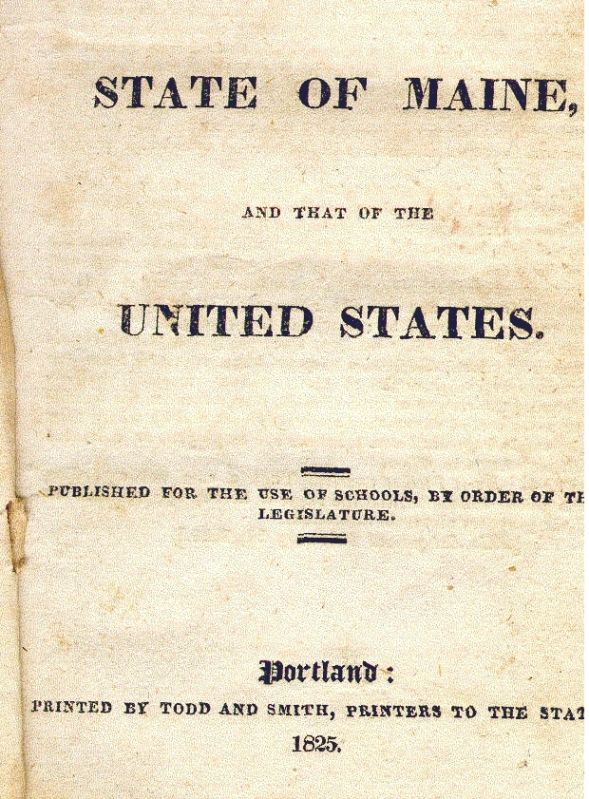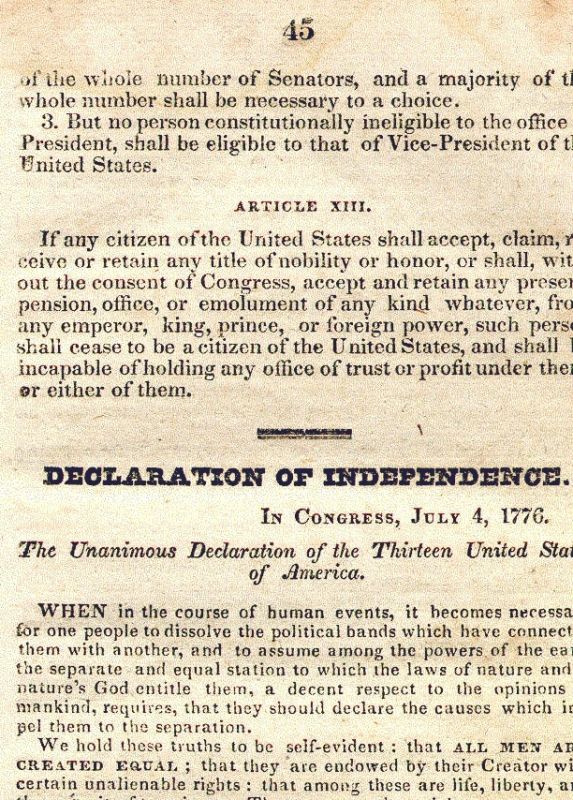Real0ne
Posts: 21189
Joined: 10/25/2004
Status: offline

|
quote:
ORIGINAL: vincentML
quote:
A major cause of the war was over slave-holding in new territories and/or states, not existing states. Lincoln finally abolished slavery in all existing states halfway through he war, but that was not the original intent.
The Emancipation applied only to states that were still in rebellion when it was issued. In some states, like Kentucky i think, which were never in secession, slaves were not freed until later. Check me on this.
vML
unconstitutional, required an amendment, and done as an after thought.
“My paramount object in this struggle is to save the Union, and it is not either to save or destroy slavery. If I could save the Union without freeing any slave, I would do it.” -A Lincoln
Similarly, in 1861 Congress resolved that the purpose of the war was not “[to interfere] with the rights or established institutions of those states,” but to preserve the Union “with the rights of the several states unimpaired.”
In his First Inaugural Address (4 March 1861), Lincoln threatened to invade any state that failed to collect federal “duties and imposts.”
On 17 July 1858, he said: “What I would most desire would be the separation of the white and black races.” And in the fourth of his debates with Douglas (on 18 September), he vowed: “I will to the very last stand by the law of this state, which forbids the marrying of white people with Negroes.” Lincoln enthusiastically supported the Illinois Constitution, which at that time prohibited the emigration of black people into the state; he also backed the infamous Illinois Black Codes, which deprived the small number of free blacks residing within the state any semblance of citizenship; and he applauded the Fugitive Slave Act (1850), which compelled Northerners to capture runaway slaves and return them to their owners.
Lincoln was a “Defender of the Constitution.” The polar opposite is true: Lincoln was a tyrant and the despoiler par excellence of the Constitution. Generations of historians have accurately labelled him a “dictator.” “Dictatorship played a decisive role in the North’s successful effort to maintain the Union by force of arms,” wrote Clinton Rossiter in Constitutional Dictatorship (first published in 1948). “Lincoln’s amazing disregard for the Constitution was considered by nobody as legal.”
1. The authority in this field is Thomas DiLorenzo. See in particular his books The Real Lincoln: A New Look at Abraham Lincoln, His Agenda, and an Unnecessary War, Prima Lifestyles, 2002, and Lincoln Unmasked: What You’re Not Supposed to Know About Dishonest Abe, 2006, and short articles. See also Government Growth, the Party of Lincoln, and George W. Bush by Anthony Gregory, and Jeffrey Rogers Hummel, Emancipating Slaves, Enslaving Free Men: A History of the American Civil War, Open Court, 1996.
2. In 1860, the proceeds from tariffs comprised 95 percent of federal revenue. The secession of the Southern states thus meant considerable loss to the federal treasury. Expenditures – i.e., pork barrel politics – would have to fall, and Lincoln’s and his Republican henchmen’s raison d’être become much less viable. That, they would not abide.
3. Republicans demanded the blockade and bombardment of Southern ports because the Confederate constitution had outlawed protectionist tariffs. Given a 50 percent tax on goods imported via New York, and a 10 percent tax in Charleston (South Carolina), then much trade would divert from Northern to Southern ports – to the detriment of the former and the profit of the latter. This the Republicans could not abide: hence even before the War started they demanded the blockade and bombardment of Southern ports. See also David Gordon’s review of A Century of War: Lincoln, Wilson, and Roosevelt.
4. Native Americans have as many grounds as Southerners to despise Dishonest Abe. The man who gave the military a free hand to oppress Northerners and Southerners also gave carte blanche to federal troops and cavalry to exterminate Indian tribes in the West.
5. Canadians, too, have good reason to laugh in derision at Americans delusions about “self determination.” Just as Southerners were forcibly denied the right of secession, on two occasions (1775 and 1812) Americans invaded Canada in order to force annexation upon unwilling British North Americans. Canadians declined the American “offers” because they have long known something that utterly escapes Americans: a benign despot across the seas, particularly one that takes no more than an intermittent interest in his overseas Dominions, is far preferable to a malignant one within the Beltway. Fortunately for the liberty of Canadians, on each occasion the Americans withdrew in ignominy and disarray.
6. In his memoirs (1891), Sherman wrote that he met with Lincoln after the March to the Sea. The president was eager to hear stories about how thousands of Southern civilians (mostly children, women, the elderly and the infirm) had been plundered, sometimes murdered, and rendered homeless. According to Sherman, Lincoln laughed uproariously at the stories. One of Sherman’s biographers (Lee Kennett, Sherman: A Soldier’s Life, Harper, 2002), who otherwise writes very favourably about the general, concludes that if the Confederates had won the war then they would have been “justified in stringing up President Lincoln and the entire Union high command for violation of the laws of war, specifically for waging war against non-combatants.”
Although Abraham Lincoln had always had a personal dislike of slavery, he was indeed willing to tolerate it in the states in which it was well established if it could preserve the Union—and if it did not spread to other states in future. After the South seceded, however, Lincoln decided that they’d had their chance and all bets were off. Always balancing pragmatism with idealism, he waited for a convincing enough victory to give the impression of dealing from a position of strength, which Antietam provided, and then issued the Emancipation Proclamation in January 1863.
That proclamation was not only aimed at the Rebels, however—it was designed to force the moral factor of slavery into the forefront before Britain (which had banned the slave trade in 1831) and France—both of which had been considering recognizing the Confederacy. In doing this, Lincoln turned a battle that on the tactical level had been an unsatisfyingly marginal victory for the North into a major strategic victory.
Sincerely,
Jon Guttman
Research Director
World History Group
More Questions at Ask Mr. History
< Message edited by Real0ne -- 7/30/2016 11:57:45 PM >
_____________________________
"We the Borg" of the us imperialists....resistance is futile
Democracy; The 'People' voted on 'which' amendment?
Yesterdays tinfoil is today's reality!
"No man's life, liberty, or property is safe while the legislature is in session
|

 Profile
Profile




 New Messages
New Messages No New Messages
No New Messages Hot Topic w/ New Messages
Hot Topic w/ New Messages Hot Topic w/o New Messages
Hot Topic w/o New Messages Locked w/ New Messages
Locked w/ New Messages Locked w/o New Messages
Locked w/o New Messages Post New Thread
Post New Thread